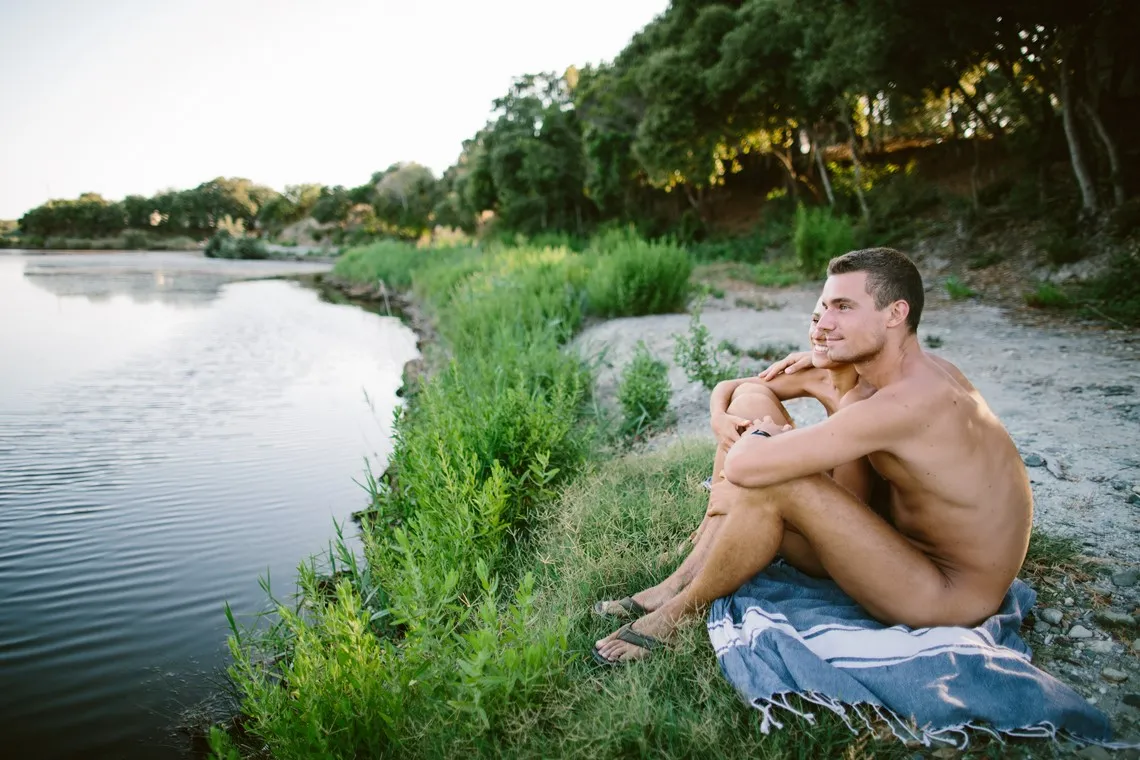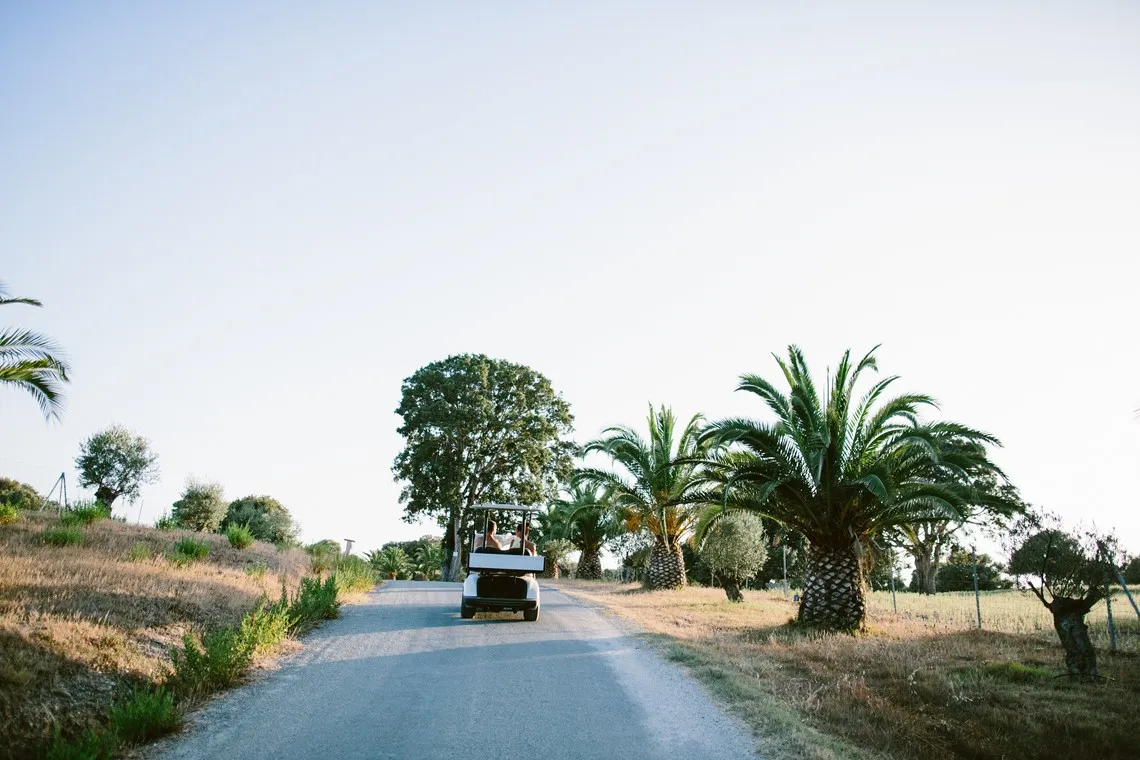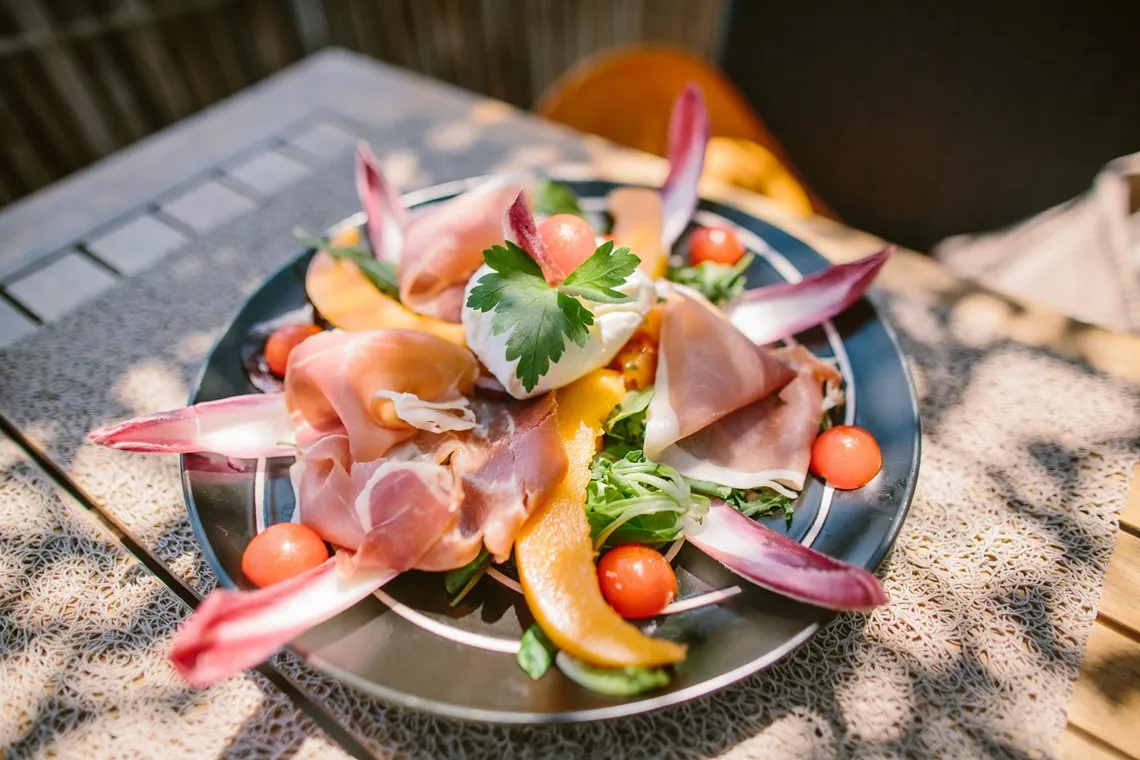Ecotourism in Corsica
Ecotourism and sustainable tourism at Riva Bella Resort in Corsica
The Riva Bella naturist campsite in Corsica is committed to developing sustainable tourism in order to reduce the ecological footprint of its activity and to preserve the biodiversity of the site.
Sustainable tourism concerns us all
Sustainable tourism aims to harmonise tourist activity with the preservation of natural and cultural ecosystems. Each individual, through his or her actions, has an impact on the environment. A few responsible gestures can enable us to limit our impact on nature.
These eco-gestures may seem insignificant on a daily basis, but they contribute to the protection of our island. This is the metaphor of the hummingbird: each individual contributes by his or her actions, at his or her own level, to preserving the environment, our common good.
Respect for natural areas, conservation of biodiversity
- Revegetation of dunes with endemic species
- Integration of buildings with minimum earthwork to respect the integrity of the site and preserve plant species.
- The salt Terrenzana salt lagoon is equipped with an aquasystem aerator. This equipment improves the oxygenation of the lagoon and thus preserves its flora and fauna.
- Clearing the site is done by hand (with the help of llamas!): the flora is respected and minimally damaged, exhaust gas emissions and noise pollution are thus minimised.
- Watering of the plantations is limited thanks to mulching and automatic drip watering.
- Maintenance staff travel in electric carts
Tips for preserving nature on holiday
- Do not pick wild plants
- Respect wildlife, do not fish or hunt in protected areas.
- When hiking, respect the trail markings so as not to damage the flora.
- By boat, anchor on sandy bottoms so as not to tear up the Posidonia meadows.
Prevent fires! : with its very dry summers, it only takes a spark to ignite Corsica :
- Barbecues, bonfires and campfires are prohibited from June to September. Only electric barbecues are allowed in Riva Bella.
- Do not throw cigarette butts, glass or glass bottles into the environment. A shard can ignite the maquis srub through the magnifying glass effect.
- In the event of fire, call firefighters immediately on 18
Saving energy
- Geothermal heat pump
- Solar thermal heating
- Riva Bella encourages carpooling. A blackboard located at the Reception desk collects and centralises searches and offers of rides among the residents.
- LED lighting in the bar-restaurant, the thalasso wellness centre and in the sanitary facilities.
- The majority of paths are equipped with solar lighting.
- In all accommodation and in all buildings, the old light bulbs have been replaced by low-energy light bulbs.
- Faucets/taps are equipped with flow reducers (which do not affect comfort).
- Air conditioning and heating systems are regularly cleaned and maintained to limit electricity consumption.
- The bungalows on the beach of the resort are equipped with awnings called "Jalousies" for ventilation, lighting and solar protection. The Costa Serena bungalows are all equipped with double-glazing and our most recent accommodation, the Paradisu villas, are built in cellular concrete, an extraordinary combination of natural raw materials (water, sand, lime) and millions of air bubbles – an excellent insulator, solid, non-deformable and non-flammable.
Sustainable water use
- Do not let water run unnecessarily and limit its use (avoid long showers, washing dishes under running water...).
- Prefer a shower (50 litres) to a bath (150 litres)
- Turn off the tap while brushing your teeth. This saves 12 litres of water per minute; 18 litres for a "wet shave".
- Use the dual cistern of the flush toilet
- Use fruit and vegetable rinse water to water plants
- Water plants in the evening or early morning to prevent evaporation.
- Immediately report any water leakage to the Riva Bella reception or technical service.
Sustainable electricity consumption
- Be sure to turn off the lights when you are away from accomodation.
- Do not leave an unoccupied room lit.
- Turn off the lights when you can read comfortably in natural daylight.
- Avoid using air-conditioning: air out in the morning when it is cool and then close the rooms during the day. Louvres help to air-condition naturally: they let air through but not heat.
- In air-conditioned rooms, make sure doors and windows are closed.
- Use energy in moderation (19°C for heating and 24°C for air conditioning are satisfactory temperatures).
- In summer, close curtains to avoid overheating, maintain a more comfortable temperature and reduce the use of air conditioning.
- Unplug televisions and computers because, even in standby mode, they use up to 40% of their power consumption when switched on.
- Choose rechargeable batteries and solar-powered chargers
Respect the environment during your stay
- Do not throw anything into the lagoon, neither greasy, liquid or solid products, as they can damage the aerator and endanger the fauna and flora.
- Avoid toxic household products (especially bleach); use biodegradable detergents instead.
- Limit the use of wipes, prefer reusable microfibre cloths.
- Limit car rides within the resort
- Make carpooling work: it reduces exhaust emissions, saves money, and is fun too!
Respect nature
- Preserve the dunes by using the already established footpaths
- Do not damage the trees
- Do not cut, uproot or trample plants and flowers (most of which are endemic species to be protected).
- At sea, do not uproot the posidonia. Preserve the underwater environment.
- Take leftover bread and fruit and vegetable peelings to the llamas.
Waste
- Sort your waste and dispose of it in the appropriate containers (at each waste collection area you will find containers for household waste as well as for glass, paper and packaging; you can deposit your used batteries at the reception in the box provided for this purpose)
- Avoid the use of disposable plates and cutlery
- Drain camper van toilets and tanks in the appropriate places.
- Do not throw anything into nature (land, sea, rivers). No paper, no bottles, no plastic bags... Nothing! Plastic bags lure turtles and dolphins, who mistake them for jellyfish and choke on them. It takes 450 years for a plastic bag to disintegrate in nature. For a can it is 100 years. Chewing gum takes 5 years. If others have had the inelegance to do so, please contribute to the cleanliness of the site by picking up any rubbish lying around and putting it in a waste bin...
On our plates, give preference to...
- Food from organic farming without pesticides, chemical fertilisers or GMOs. This preserves nature and the diversity of birds, bees, plants and beetles.
- Farmed fish or organically produced meat.
- Regional products from local producers. Seasonal and locally produced fruit and vegetables foster the local economy. Those that are imported from distant countries or grown in heated greenhouses consume a lot of energy.
- Products sold in bulk. Less packaging means less energy consumed in production and less waste after consumption.









